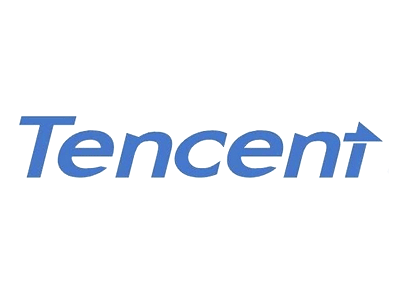① Shanghai-based optoelectronic hybrid computing unicorn Xizhi Technology has completed a Series C financing round exceeding 1.5 billion yuan, with investment from institutions including China Mobile, Shanghai Guotou, Guoxin Fund, and Pudong Venture Capital, while existing shareholders such as Zhongke Chuangxing and Yijing Capital have also increased their investments. ② According to exclusive information obtained by the Science and Technology Innovation Board Daily, Tencent has quietly invested in Xizhi Technology.
On September 4, the Science and Technology Innovation Board Daily reported (Reporter Huang Xinyi) that Shanghai-based optoelectronic hybrid computing unicorn Xizhi Technology announced the completion of a Series C financing round exceeding 1.5 billion yuan, with investment from institutions including China Mobile, Shanghai Guotou, Guoxin Fund, and Pudong Venture Capital, while existing shareholders such as Zhongke Chuangxing and Yijing Capital have also increased their investments.
The Science and Technology Innovation Board Daily reporter exclusively learned that Tencent has also invested in Xizhi Technology.
 Xizhi Technology’s founder and CEO, Shen Yichen, stated, “The large-scale optoelectronic integration technology has reached a critical stage of commercialization. We expect that within the next five years, the share of photonic chips in intelligent computing centers will reach 30%.”
Xizhi Technology’s founder and CEO, Shen Yichen, stated, “The large-scale optoelectronic integration technology has reached a critical stage of commercialization. We expect that within the next five years, the share of photonic chips in intelligent computing centers will reach 30%.”
The Science and Technology Innovation Board Daily reporter noted that Shen Yichen graduated from the Massachusetts Institute of Technology with a PhD in Physics. During his studies, he was mentored by the father of nano-optics and member of the American Academy of Arts and Sciences, John Joannopoulos, and “genius award” winner Marin Soljacic. He founded Xizhi Technology in 2017.
According to data from Chuangtou Tong, Xizhi Technology received seed round financing in 2018, amounting to 10.7 million USD, with investors including Baidu Ventures and Zhen Fund. Subsequently, the company attracted investments from various institutions including Matrix Partners China, CICC’s CICC Silicon Valley Fund, Xiangfeng Investment, Zhongke Chuangxing, China Merchants Venture Capital, Hillhouse Capital, Sequoia Capital, and P7 (Saudi Aramco).
In March of this year, Xizhi Technology launched its latest generation of optoelectronic hybrid computing card, Xizhi Tian Shu, which integrates the world’s largest 128×128 photonic matrix, achieving the application of optoelectronic hybrid computing in complex commercial models for the first time.
In April, Xizhi Technology was featured in the international academic journal Nature, where it publicly revealed the technical details of its optoelectronic hybrid computing architecture and optical computing products for the first time. The company is currently accelerating the development of the next generation of optoelectronic hybrid computing cards, which will fully support large AI models.
During the 2025 World Artificial Intelligence Conference, Xi Zhi Technology launched the world’s first distributed optical interconnect optical switching GPU supernode—LightSphere X. This supernode is based on Xi Zhi Technology’s globally pioneering distributed optical switching technology and employs silicon photonics optical interconnect switching chips along with a high-performance general-purpose GPU liquid cooling module designed by Wallrun Technology, interconnected with a new carrier board. It is equipped with high-performance domestic AI servers from ZTE Corporation and the Yidian Intelligent Computing Cloud platform software, forming an intelligent computing cluster that will be deployed at the Shanghai Yidian Intelligent Computing Center.
In addition, Xi Zhi Technology also unveiled the country’s first xPU-CPO optoelectronic co-packaged prototype system at the conference and is developing a more integrated CPO solution with greater bandwidth density, aimed at overcoming the current bandwidth and latency bottlenecks in large-scale computing clusters.
According to a reporter from the Science and Technology Innovation Board Daily, Wallrun Technology was the first GPU manufacturer to begin technical cooperation with Xi Zhi, collaborating on technologies from optical direct connection to the latest domestically pioneered optical interconnect optical switching OCS GPU supernode, resulting in three generations of products and achieving large-scale commercialization.
It is noteworthy that recent investments in chips have seen the involvement of major internet companies.
In addition to Tencent, Ant Group has also been quite active, with its Shanghai Yunwa Enterprise Management Consulting Co., Ltd. consecutively investing in Xinyuan Semiconductor and Yezhixin Technology. The Science and Technology Innovation Board Daily has exclusively learned from informed sources that, in addition to these two companies, Ant Group has also invested in another chip startup team, which has yet to be officially announced.
Among them, Shanghai Yezhixin Technology Co., Ltd. was established in May this year, with Li Zheng as the legal representative. Its business scope includes integrated circuit chip design and services, development of foundational artificial intelligence software, and development of artificial intelligence theories and algorithm software. Shareholder information shows that the company is currently jointly held by Li Zheng, Shanghai Houcheng Zhixin Enterprise Management Partnership (Limited Partnership), and other newly added shareholders.
Xinyuan Semiconductor focuses on the research and development of ReRAM new storage technology and related chip products. In addition to attracting investment from Ant Group, ByteDance’s PICOHEART (SG) PTE. LTD. also invested in Xinyuan Semiconductor in 2024, currently ranking as the sixth largest shareholder of Xinyuan Semiconductor.
